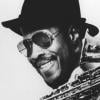
Richard Howell’s concise first show on Friday night at Mr. Tipple’s distilled much of what makes him a Bay Area jazz treasure, while raising once again the question of why he isn’t more widely known.
The North Bay saxophonist and vocalist has performed and recorded with some of the most influential figures in jazz, blues, and R&B, and his style embraces this Black American musical continuum. Opening with McCoy Tyner’s “Walk Spirit, Talk Spirit,” Howell’s quintet played with an incantatory spiritual force that mostly hushed the usually rambunctious San Francisco supper club.
Accompanied by pianist Andy Ostwald, a colleague of Howell’s at Oaktown Jazz Workshops, and bassist Ron Belcher, a prodigious player who’s worked with the saxophonist in various ensembles over three decades, Howell’s thick-toned tenor sax gathered weight and momentum while staying in the middle register.

The straw stirring the intoxicating drink was drummer Elé Howell, the saxophonist’s son, who was home for Thanksgiving from New York, where he works with star players Ravi Coltrane and Chief Xian aTunde Adjuah (formerly Christian Scott). An unflashy musician who addresses the kit with a minimum of motion, Elé is an arresting accompanist who governs the bandstand through polyrhythmic energy rather than volume.
Announced just a few days before the show, violinist Jenny Scheinman rounded out the quintet, and while she’s a relatively recent addition to Howell’s musical circle, she and the saxophonist phrased together like longtime accomplices. On a soul tune where Howell turned sweet-toned crooner, she provided expert lyrical counterpoint (when she wasn’t soloing like a ripsnorting preacher).
Moving to soprano sax, Howell played an extended version of Wayne Shorter’s rarely covered “Beauty and the Beast” (from Shorter’s classic 1975 collaboration with Milton Nascimento, Native Dancer). It’s a tricky instrument that can sound overly sweet or slightly sour in the wrong hands, but Howell “sings” through the horn, and his soprano tone echoed his pure falsetto on the previous piece.
While one set isn’t enough time to reveal the entire range of this multitudinous musician, Howell gave an enthralling glimpse of an artist in full.
And he wasn’t the only one. Scheinman was also part of the group that played the early shows at Mr. Tipple’s on Friday. Alto saxophonist Beth Schenck’s quartet offered a very different kind of instrumental blend, with the inveterately inventive drummer Jordan Glenn and Matt Wrobel on (mostly acoustic) guitar.
Three-fourths of the chamber jazz ensemble House of Faern (which features pianist John Wood rather than Glenn), the quartet explored some similar folk-jazz territory but with more rhythmic urgency, touching on bluegrass, Gypsy swing, and angular post-bop funk. Whether playing unison with Schenck’s light, luminous alto or Howell’s burly, keening tenor, Scheinman accentuated and expanded their narratives.
The bigger story is that it was possible to catch two singular bands at one venue the same night. San Francisco may have lost some of its luster recently, but when it comes to music, the city hasn’t lost its capacity to delight and amaze.



